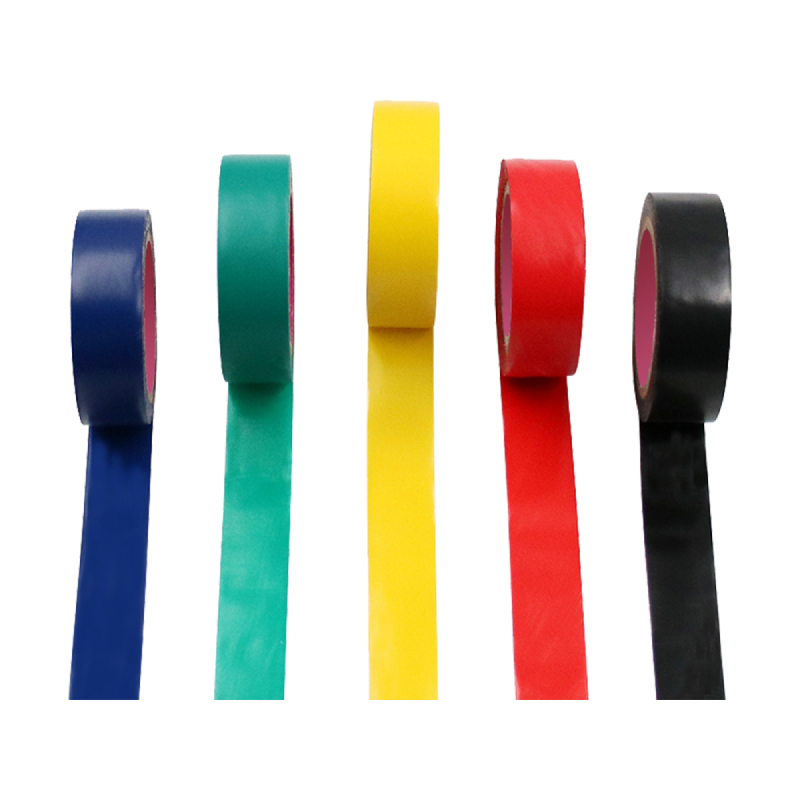The Versatility and Benefits of Self-Fusing Silicone Electrical Tape
In the realm of electrical insulation and repairs, self-fusing silicone electrical tape has emerged as an indispensable tool for both professionals and DIY enthusiasts. Known for its unique characteristics, this type of tape goes beyond traditional adhesive tapes, offering a plethora of benefits that enhance its utility in various applications.
What is Self-Fusing Silicone Electrical Tape?
Self-fusing silicone electrical tape is a non-adhesive tape made primarily from silicone rubber. It is designed to bond to itself when stretched and wrapped around an object. This self-fusing process creates a strong, water-tight seal without the need for adhesive, making it particularly useful for electrical insulation, repairs, and a host of other applications.
Key Features
1. Electrical Insulation One of the foremost reasons for using silicone electrical tape is its excellent electrical insulation properties. With a high dielectric strength, it effectively protects wires and electrical components from moisture, dust, and other environmental factors that could lead to short circuits or equipment failures.
2. Temperature Resilience Silicone tape can withstand a wide range of temperatures, typically from -60°C to 260°C (-76°F to 500°F). This makes it suitable for both high-heat and low-temperature applications, ensuring reliable performance even under extreme conditions.
3. Water and Weather Resistance Its self-fusing nature allows it to form a watertight seal. This characteristic is particularly valuable in outdoor settings or in situations where moisture is a concern, such as in marine or automotive applications.
4. Flexibility and Conformability Unlike traditional electrical tapes, self-fusing silicone tape is highly flexible and can easily conform to irregular shapes and surfaces. This feature makes it ideal for wrapping around tight bends, connectors, and other components where regular tape may not adhere properly.
self fusing silicone electrical tape

5. Chemical Resistance Silicone electric tape is resistant to a variety of chemicals, including oils, fuels, and solvents. This chemical resilience adds another layer of protection, particularly in industrial settings where exposure to harsh substances is common.
Applications
The versatility of self-fusing silicone electrical tape lends itself to a wide array of applications. It is commonly used in
- Electrical Repairs Ideal for insulating and repairing wiring, splices, and connections. - Automotive Uses Used to wrap exposed wires and prevent electrical shorts in vehicles. - Marine Applications Protects wiring and connections from moisture and corrosion in boats and other marine equipment. - Plumbing and HVAC Effective in sealing leaks and insulating pipes to prevent condensation.
Advantages Over Traditional Tapes
While traditional electrical tapes rely on adhesives, self-fusing silicone tape offers several advantages. The lack of adhesive means that it does not leave a sticky residue and can be removed cleanly. Additionally, its ability to form a cohesive bond rather than relying on adhesion means that it won't peel or lift over time, providing a more durable solution for insulation and repair tasks.
Conclusion
Self-fusing silicone electrical tape stands out as a superior option for a variety of electrical and repair applications. Its combination of excellent insulation properties, temperature resilience, flexibility, and durability makes it a go-to choice for professionals and hobbyists alike. Whether you are working on electrical wiring, automotive repairs, or any project requiring reliable insulation, incorporating self-fusing silicone electrical tape into your toolkit is a smart decision that promises to deliver long-lasting, high-performance results.
-
XIANGFAN Rubber Tape-Ultimate Solutions for All Your Insulation NeedsNewsJun.24,2025
-
XIANGFAN Rubber Tape-Protection for Industrial and Residential ApplicationsNewsJun.24,2025
-
XIANGFAN Rubber Tape: Superior Safety and Sealing for Demanding EnvironmentsNewsJun.24,2025
-
XIANGFAN Rubber Tape: Reliable Solutions for Every Electrical ChallengeNewsJun.24,2025
-
XIANGFAN Electrical & Industrial Tape: Powering Reliability Across IndustriesNewsJun.24,2025
-
XIANGFAN Electrical & Industrial Tape: Excellence in Every ApplicationNewsJun.24,2025
